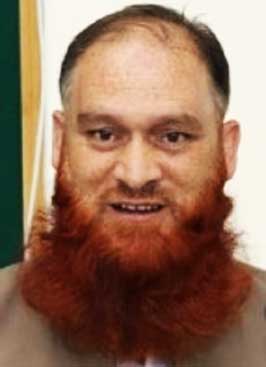When Pakistan Tehreek-e-Insaf (PTI) stormed into power in Khyber Pakhtunkhwa in 2013, it felt like a moment of history in the making. For the people of KP – who had spent years grappling with war, corruption, and neglect – the rise of PTI was more than just a political shift. It was a lifeline. A promise, a dream.
A decade later, that dream lies in pieces.
“Tabdeeli kidhar gayi?”
Walk through the green valleys of Swat or the sunbaked plains of Bannu, and you’ll hear a common question murmured in tea stalls and hujras: “Tabdeeli kidhar gayi?” (Where did the change go?)
In 2013, PTI promised to uproot the status quo. By 2018, voters – hopeful yet cautious – made them the only party ever re-elected in KP’s history. But in 2025, the mood has soured. Those who once shouted “Naya Pakistan” now speak in hushed tones of betrayal, disillusionment, and broken promises.
A Province on the Brink
The numbers tell a grim story. KP’s debt has ballooned to over Rs. 680 billion – a 600% increase since PTI took charge (The Nation, 2025). Government workers often go unpaid. Pensioners stand in long queues with no assurance of a paycheck. Hospitals run short of basic supplies. Universities like those in Swabi, Peshawar, and D.I Khan are nearing collapse.
In villages, development projects are abandoned. Roads remain broken. Local contractors refuse to work because the government can’t pay them. Yet, PTI officials keep shifting the blame – to Islamabad, to IMF conditions, to bureaucrats. But never to themselves.
Ghost Schools, Silent Classrooms: PTI’s so-called “education emergency” has turned into an unspoken tragedy. Despite fancy announcements and photo ops, thousands of children in KP still don’t go to school.
In mountainous regions, kids walk for miles, only to sit in classrooms with no roofs, no teachers, and no toilets. Many bring their own mats to sit on. Others just stop going.
Meanwhile, the much-advertised laptop schemes and English-medium conversions did little to address deeper, structural issues. They were more about headlines than homework.
Sehat Card: A Promise Without Care: When the Sehat Insaf Card was launched, it offered a rare glimmer of hope. Free healthcare for families in need – a noble goal. But reality unfolded differently.
Hospitals began refusing the card due to unpaid dues. In places like Charsadda and Tank, patients travel over 50 kilometers for basic treatment. Reports confirm that in many areas, the Sehat Card is little more than a plastic token (Dunya News, 2023).
One woman from Lakki Marwat shared, “They gave me a card, but the hospital laughed when I showed it. I had to borrow money for my child’s medicine.”
Terror Returns to Familiar Ground: For many in KP, the return of terror has been the most painful regression. Places like Swat, Bajaur, and Bannu – once cleared through hard-fought military operations – are again witnessing TTP activity.
In 2023, a suicide attack in Bajaur and a brazen assault on Bannu cantonment shocked the nation (APP, 2024). Local communities protested, asking: “Where is the state?”
No answers came. Even the KP Governor publicly admitted that PTI had failed to maintain peace (The Express Tribune, 2024). The silence from PTI’s leadership spoke volumes.
Corruption: The Tabdeeli That Wasn’t: PTI’s war cry was against corruption. Yet, KP became a case study in how not to govern. A Rs.40 billion scam in Upper Kohistan – involving fake cheques and ghost accounts – is currently under NAB investigation (Wikipedia: Gandapur Ministry).
The KP Ehtesab Commission, once hailed as a watchdog, was quietly dismantled when it started probing PTI ministers. A 2022 report by the Human Rights Commission of Pakistan pointed to “declining transparency and increasing political interference” in KP’s accountability bodies.
The Pain of a Disappointed Voter: The deepest wound isn’t financial or institutional – it’s emotional. KP gave PTI everything. Not just votes, but belief. From Hazara to Dir to Kohat, people backed PTI because they wanted hope, not handouts.
A farmer in Swat puts it simply: “They kept promising a revolution in Islamabad – but we still don’t even have electricity in our village.”
It’s not the absence of roads or jobs that stings the most. It’s the feeling of being lied to.
Conclusion: A Promise Wasted: PTI had the perfect storm of opportunity – public trust, political space, and a media machine echoing its every word. KP could’ve been a model for Pakistan. Instead, it became a warning.
PTI spent more time staging protests than fixing schools. More energy on narratives than on hospitals. More passion for power than for peace.
And now, KP has nothing to show for its decade of loyalty.
In the end, slogans can win rallies, but only service wins hearts. People may forgive delay. But they won’t forgive deception.
Sign in
Welcome! Log into your account
Forgot your password? Get help
Password recovery
Recover your password
A password will be e-mailed to you.





